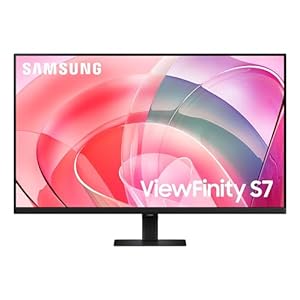It might be a cliche, but I’m still impressed by how TV sizes have grown in my lifetime. When I was a kid, screens under 40 inches were not only the norm, but often the only viable choice, since they were attached to heavy CRT cabinets that made moving them a two-person operation — never mind positioning them wherever you wanted. The first TV my family owned doubled as a piece of decorative furniture. You knew a friend’s parents were rich if they had one of those standalone projection TVs sitting in their living room.
Today, most of you probably own sets over 50 inches, and the race for ever-larger TVs continues. It’s increasingly easy to find 70-, 80, or 100-inch models in stores, and the richest kids have screens that are even bigger. Oddly enough, however, I find myself not only content at 65 inches, but resistant to getting anything larger. That may change eventually as new technologies come down the pike and become more affordable. I’ll explain that thought in a minute.
Diminishing returns
Quality over quantity
If you’re not just shopping for a status symbol, the main reason for wanting a larger screen is immersion. It’s why I still go to theaters when the rare opportunity presents itself. As nice as my TV might be, nothing beats a film that completely fills your field of view, making you forget the outside world for a few hours. It’s why movies and TV shows are such a popular use of AR/VR headsets like the Meta Quest 3 and Apple Vision Pro.
I’ll gladly trade a bit of size for technology that enhances image quality.
Short of a headset or theater, however, I find that there are diminishing returns on modern screen sizes. From six feet away, even a 65- or 70-inch TV is probably going to fill most of your vision. Going larger may still improve that, and let you pick up on tiny details — but more often in a way that feels gratuitous instead of useful. For movie nights with your partner, it might actually be more cost-effective to buy a pair of Quest 3s and jump into the same virtual theater. I’ll elaborate on that point later.
Most importantly, money spent towards a larger size often means less spent on other specifications. Sure, you can get a 75-inch TV for as little as $500 if you shop around — but you’ll be getting an LCD model rather than something with OLED or mini-LED, either of which will dramatically improve HDR content. Likewise, that $500 set is going to be capped at a 60Hz refresh rate, making it less than ideal for gaming. I’ll gladly trade a bit of size for technology that enhances image quality.
Flexibility in room placement
Just because you can…
A phenomenon I’ve seen in both Alberta and Texas is the house with a truck or SUV so large, it simply won’t fit in the garage, or sometimes even in the driveway. That’s understandable if you legitimately need to carry a lot of cargo — but based on how pristine some of these vehicles are, it’s pretty clear that a lot of drivers would be better off with something smaller. No one needs a Ford Excursion to cart kids and groceries around town.
Consider also that bigger TVs typically need heavier mounts, or at least bigger entertainment centers to sit on.
You can tell where I’m going with this. The larger your TV, the less room there is to maneuver, and the fewer options you have for placement. There were only two places my 65-inch set could go in my own living room, mounted or otherwise. An 80-inch set might’ve been completely unworkable, and that’s with a flush mount — trying to angle it in a corner would’ve noticeably shrunk my room’s usable space.
Consider also that bigger TVs typically need heavier mounts, or at least bigger entertainment centers to sit on. That’s going to add to your expenses, and possibly further restrict where things can go. I wouldn’t want to hang a 100-inch TV on anything less than the sturdiest of wall studs.
Simply buying a larger TV can be a hassle
Always think about the logistics
If you’ve ever shopped at a big-box retailer like Target or Best Buy on weekends, you’ve probably seen someone trying to cram a TV into the back of a vehicle that’s barely big enough to fit it, if it fits at all. No one wants to pay that home delivery fee, it seems. Some people may simply have a bad grasp of how well 70 inches of plastic and glass slides over folded seats.
If you live in an apartment building, good luck getting an 80-inch TV in an elevator or up three flights of stairs.
Even if you order a TV online, though, you’re not out of the woods. That set has to make it through your front door somehow. Ordering an oversized TV can risk extra shipping complications, from an increased chance of damage to delivery couriers conveniently missing you, then requiring you to go pick up your order from a warehouse anyway. If you live in an apartment building, good luck getting an 80-inch TV in an elevator or up three flights of stairs.
I might be exaggerating the seriousness of this issue. Nevertheless, you should consider just how much you value a big screen before you slap down your credit card.
More convenient tech could be waiting in the wings
The verge of a new era
The potential impact of AR and VR shouldn’t be underestimated. Yes, the Quest 3, Vision Pro, and new Samsung Galaxy XR are all relatively bulky headsets, but they’re comfortable enough for a two-hour movie as long as you wear the right strap, and designs are getting slimmer with every generation. In the long term, the goal is to not just replace your smartphone, but digitally enhance the world around you. If you’ve got a Vision Pro, you can already put a virtual TV in your living room that’s larger than any real one on the market. The only serious issues at the moment are battery life and cost — the Quest 3 is “cheap” at $500, and no headset will last much longer than a two-hour movie without being plugged in.
If you’ve got a Vision Pro, you can already put a virtual TV in your living room that’s larger than any real one on the market.
For the people who don’t want to wear anything on their faces, other technologies could make huge images a lot more practical. Companies are already experimenting with rollable and foldable TVs, and naturally, room-to-room projector systems continue to evolve. None of these options are very affordable, yet, but tech trends can spin on a dime sometimes.
The real question may be how quickly affordable AR glasses are going to become widespread. If everyone already has a pair, won’t be much needed for movie nights other than a couch for everyone to sit on. If mass-market rollable TVs beat those glasses to the punch, AR movies could be relegated to their current niche.
Trending Products

HP 2024 Laptop | 15.6″ FHD (1...

Lenovo V-Series V15 Business Laptop...

HP 24mh FHD Pc Monitor with 23.8-In...

Thermaltake Ceres 300 Matcha Green ...

ASUS TUF Gaming 27″ 1080P Mon...

Acer Nitro 27″ WQHD 2560 x 14...

CORSAIR iCUE 4000X RGB Tempered Gla...

SAMSUNG 32-Inch ViewFinity S7 (S70D...

Wi-fi Keyboard and Mouse Combo, Lov...









